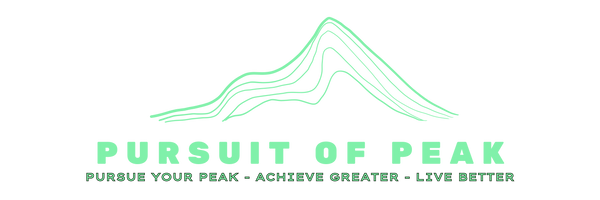
Hydration and Recovery: How Water Impacts Performance, Mood and Muscle Repair
Share
Water might be the simplest health tool we have, and also the most overlooked. In a world that celebrates green powders, protein supplements, and complex routines, we often forget that something as basic as hydration underpins it all.
Whether you’re training hard, healing from burnout, or simply trying to stay sharp at work, water is essential. It impacts your mood, cognitive clarity, energy, and recovery more than you think. And if you feel tired, puffy, or foggy, hydration could be your missing link.
Why Hydration is More Than “Drinking Enough Water”
Hydration isn’t just about quantity. It's about absorption and balance. Your cells need both water and electrolytes like sodium, potassium and magnesium to function. Without them, water won’t actually enter and stay in the cells where it’s needed.
According to a 2020 review in Nutrients Journal, even mild dehydration can reduce endurance, coordination, short-term memory and mental focus.
Dehydration and Muscle Recovery

After training or physical stress, your body needs to rehydrate to repair muscle tissue, flush waste metabolites, and reduce soreness. Electrolytes help shuttle nutrients to muscles and remove cellular debris.
A study in the Journal of Athletic Training showed that even a 2% fluid loss can lead to slower recovery times and increased perceived fatigue in athletes.
Brain Fog, Fatigue and Cognitive Performance
Your brain is about 75% water. Dehydration affects your ability to focus, remember, and stay emotionally regulated. This is why brain fog, headaches and irritability are often signs you’re underhydrated.
A 2021 study published in Frontiers in Nutrition found that hydration positively influenced both working memory and executive function.
How Much Water Do You Really Need?

- Aim for 30–35ml of water per kilogram of body weight daily
- Add more if you sweat heavily, breastfeed, are pregnant, or in hot climates
- Prioritise electrolytes if you’re fasting, training, or on a low-carb diet
Signs You’re Not Hydrating Well
If you’re not hitting your hydration goals, your body usually lets you know — and it’s not just about thirst. Here’s what to watch for:
- Fatigue that hits mid-morning or mid-afternoon, even after sleeping well
- Headaches, brain fog, or unexpected mood swings
- Strong cravings for salty snacks or sugar without physical hunger
- Dry lips, poor skin tone, under-eye puffiness or shadows
Smarter Ways to Stay Hydrated
Hydration isn’t just what you drink, but how and when you drink it. These simple tweaks help you absorb water better and stay hydrated longer:
- Start your morning with 500ml of warm water and a pinch of sea salt to replenish electrolytes
- Drink water between meals instead of only during them
- Add natural flavour with cucumber, lemon, mint, or berries to encourage intake
- Use a mineral-rich electrolyte powder or sea salt post-workout or on hot days
- Keep a refillable bottle in your line of sight and set reminders if needed
Final Sip
Hydration isn’t glamorous, but it’s foundational. Before you reach for another coffee or supplement, try drinking a glass of mineral water and see what shifts. Better focus. More energy. Deeper recovery. Sometimes, it really is that simple.
🗻YOURS IN PURSUIT, CASEY
FAQs
-
How do I know if I’m dehydrated?
Signs include dark urine, fatigue, mood swings, dry mouth, or poor focus. -
Are electrolyte powders necessary?
Not always, but if you’re sweating a lot, fasting, or on low-carb, they help. -
What counts toward hydration?
Water, herbal teas, mineral water, and hydrating foods like fruit and cucumber. -
Does coffee dehydrate you?
In large amounts, yes. Moderate caffeine can be okay when balanced with water. -
Is it better to sip or chug?
Sip consistently through the day, it absorbs better and is gentler on your kidneys. -
Can dehydration affect mood?
Yes. Studies link dehydration with irritability, anxiety, and poor focus.
